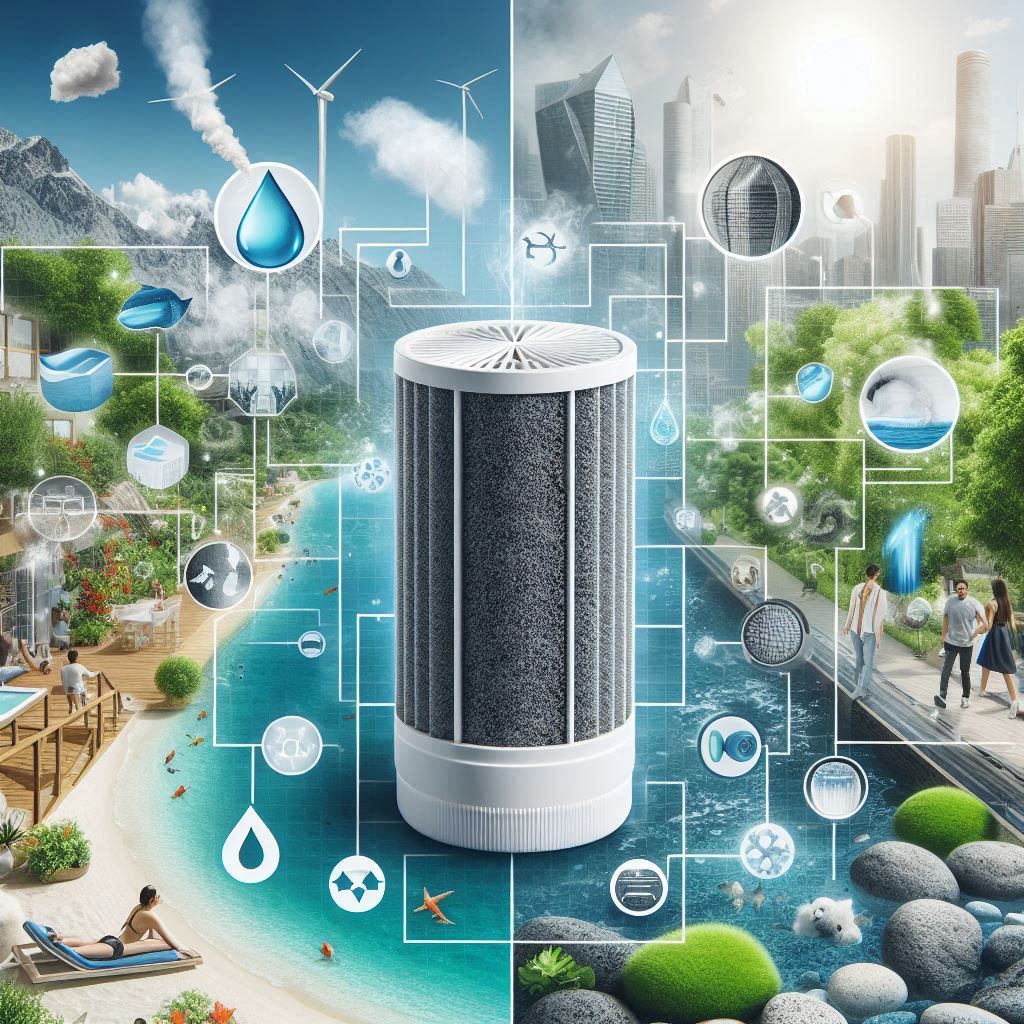When it comes to air and water purification, one technology stands out—activated carbon filters. But what exactly is their purpose, and why are they so effective? In this article, we’ll explore the role of activated carbon filters, how they work, and how Guanbaolin Carbon Industry, a leading manufacturer of activated carbon equipment, plays a crucial role in delivering high-quality filtration solutions.

Outline:
- Introduction
- What Is an Activated Carbon Filter?
- The Science Behind Activated Carbon
- How It Works
- Different Types of Activated Carbon Filters
- The Main Purpose of Activated Carbon Filters
- Removing Odors and Harmful Gases
- Eliminating Toxic Chemicals and VOCs
- Purifying Water for Safe Consumption
- Industrial Uses of Activated Carbon
- How Activated Carbon Filters Compare to Other Filtration Methods
- HEPA vs. Activated Carbon
- Reverse Osmosis vs. Activated Carbon
- Why Activated Carbon Is Essential
- Guanbaolin Carbon Industry: Revolutionizing Activated Carbon Technology
- The Role of High-Quality Activated Carbon Equipment
- How Guanbaolin Ensures Superior Filtration Performance
- Conclusion
- FAQs
What Is an Activated Carbon Filter?
Activated carbon filters are powerful purification tools that use adsorption to remove harmful contaminants from air and water.
The Science Behind Activated Carbon
Activated carbon is made by superheating organic materials like wood, coconut shells, and coal to create a highly porous structure. This porous surface acts like a sponge, trapping pollutants and preventing them from passing through.
How It Works
When air or water passes through an activated carbon filter, contaminants stick to the carbon surface, removing impurities such as chemicals, gases, and odors.
Different Types of Activated Carbon Filters
- Granular Activated Carbon (GAC): Best for water purification
- Powdered Activated Carbon (PAC): Used in air filters and industrial applications
- Carbon Block Filters: Provide superior filtration for drinking water
The Main Purpose of Activated Carbon Filters
Removing Odors and Harmful Gases
Activated carbon filters are commonly used in air purifiers to eliminate smoke, pet odors, and harmful gases like formaldehyde and benzene.
Eliminating Toxic Chemicals and VOCs
Volatile Organic Compounds (VOCs) from cleaning products, paint, and industrial emissions are effectively captured by activated carbon filtration systems.
Purifying Water for Safe Consumption
Activated carbon is widely used in household and industrial water purification systems to remove chlorine, pesticides, and heavy metals, ensuring safe drinking water.
Industrial Uses of Activated Carbon
Industries use activated carbon for:
- Air pollution control
- Chemical processing
- Wastewater treatment
How Activated Carbon Filters Compare to Other Filtration Methods
| Feature | Activated Carbon | HEPA | Reverse Osmosis |
|---|---|---|---|
| Removes Particles | No | Yes | Yes |
| Removes Gases & Odors | Yes | No | No |
| Water Purification | Yes | No | Yes |
| Best For | Air & Water Purification | Airborne Particles | Water Purity |
Guanbaolin Carbon Industry: Revolutionizing Activated Carbon Technology
The Role of High-Quality Activated Carbon Equipment
Manufacturing premium activated carbon requires cutting-edge equipment. Guanbaolin Carbon Industry is a leading supplier of advanced activated carbon production technology, ensuring maximum efficiency and performance.
How Guanbaolin Ensures Superior Filtration Performance
By developing state-of-the-art activated carbon production machines, Guanbaolin Carbon Industry helps industries achieve high-quality filtration solutions for air and water purification worldwide.
Conclusion
Activated carbon filters serve a vital purpose in removing contaminants from air and water, making them an essential component in both household and industrial applications. With Guanbaolin Carbon Industry leading the way in manufacturing top-tier activated carbon equipment, cleaner air and safer water are more accessible than ever.
FAQs
1. What does an activated carbon filter remove?
It removes odors, gases, VOCs, chemicals, and some heavy metals.
2. How often should I replace my activated carbon filter?
Typically every 3-6 months, depending on usage.
3. Is activated carbon filtration safe?
Yes, it is widely used for air and water purification without harmful effects.
4. Can activated carbon filters remove bacteria?
No, but they are often combined with other filtration methods to achieve full purification.
5. Why choose Guanbaolin Carbon Industry for activated carbon equipment?
Guanbaolin Carbon Industry offers high-quality, efficient equipment for manufacturing top-grade activated carbon, ensuring better filtration and purification results.
Please don’t forget to leave a review.
Explore more by joining me on Patreon.
